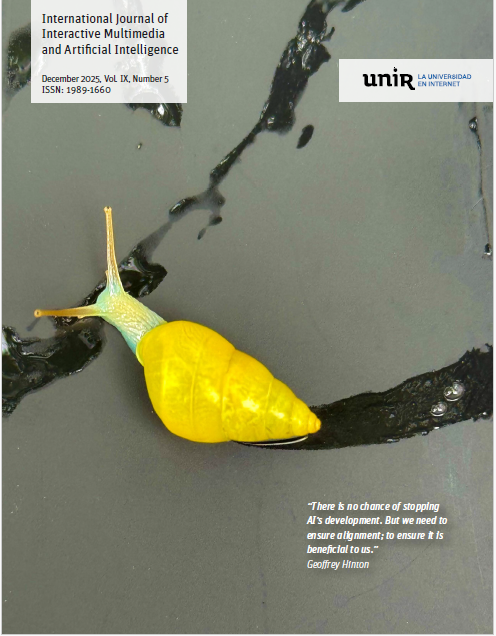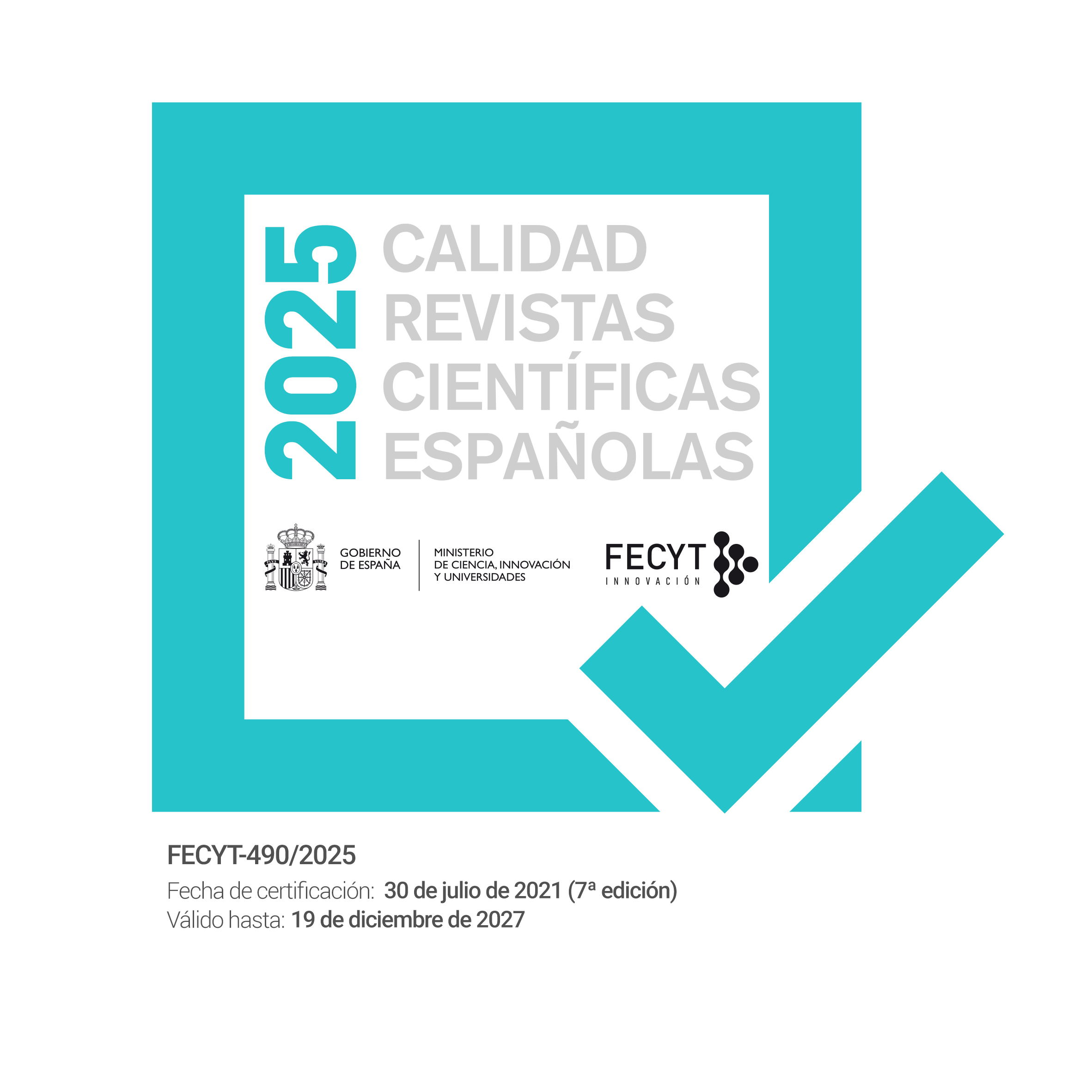About the Journal
Title: International Journal of Interactive Multimedia and Artificial Intelligence (IJIMAI)
Edited by: Elena Verdú, Universidad Internacional de la Rioja (Spain)
Published by: Universidad Internacional de la Rioja (Spain)
ISSN: 1989-1660 |DOI: 10.9781/ijimai
Periodicity: quarterly
Content access policy: open access
Editors & Editorial Board | Scientific Committee | Reviewers of the 2024 issues
Subjects: AI theories, methodologies, systems, and architectures that integrate multiple technologies, as well as applications combining AI with interactive multimedia techniques
The International Journal of Interactive Multimedia and Artificial Intelligence (IJIMAI, ISSN 1989-1660) is a quarterly open-access journal that serves as an interdisciplinary forum for scientists and professionals to share research results and novel advances in artificial intelligence. The journal publishes contributions on AI theories, methodologies, systems, and architectures that integrate multiple technologies, as well as applications combining AI with interactive multimedia techniques.
Current Issue

The International Journal of Interactive Multimedia and Artificial Intelligence (IJIMAI) provides a forum for researchers and professionals to share the latest advances in artificial intelligence (AI) and its applications. This December issue brings together contributions that showcase diverse uses of AI, ranging from spatio-temporal prediction in cities and communication networks to educational analytics and deep learning-assisted medical diagnosis, as well as cultural heritage, 3D modeling, and security in the Internet of Things (IoT).
Regular Articles
-
Self-Supervised Attentive Feature Learning for Alzheimer’s Disease Detection
-
Abstract 491
-
PDF 138
-
Abstract 491
-
An Adaptive Framework for Resource Allocation Management in 5G Vehicular Networks
-
Abstract 284
-
PDF 102
-
Abstract 284








